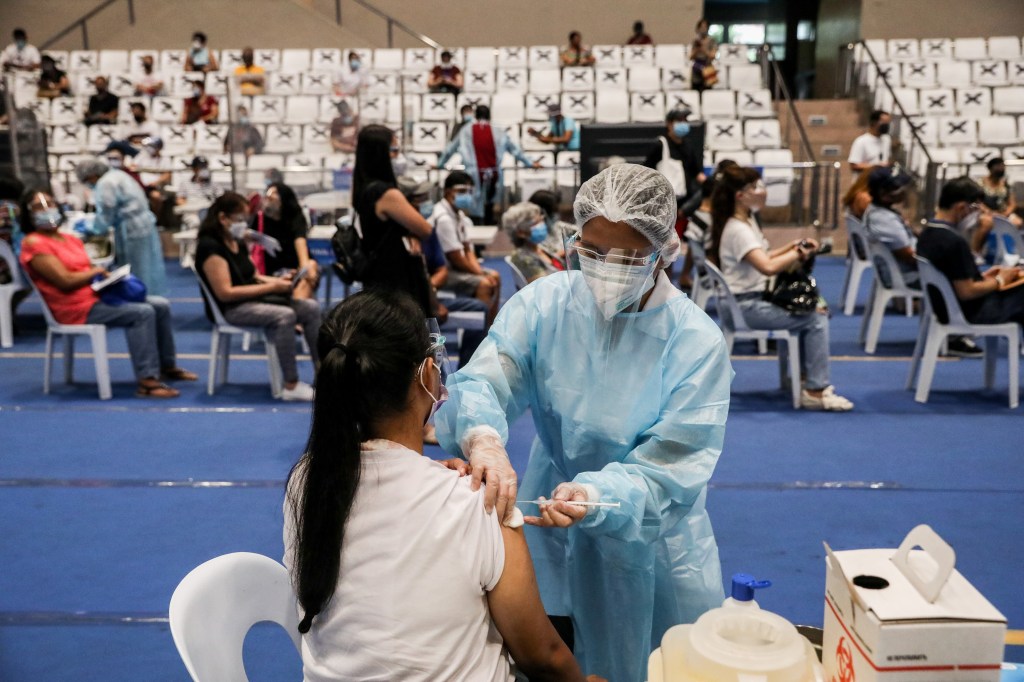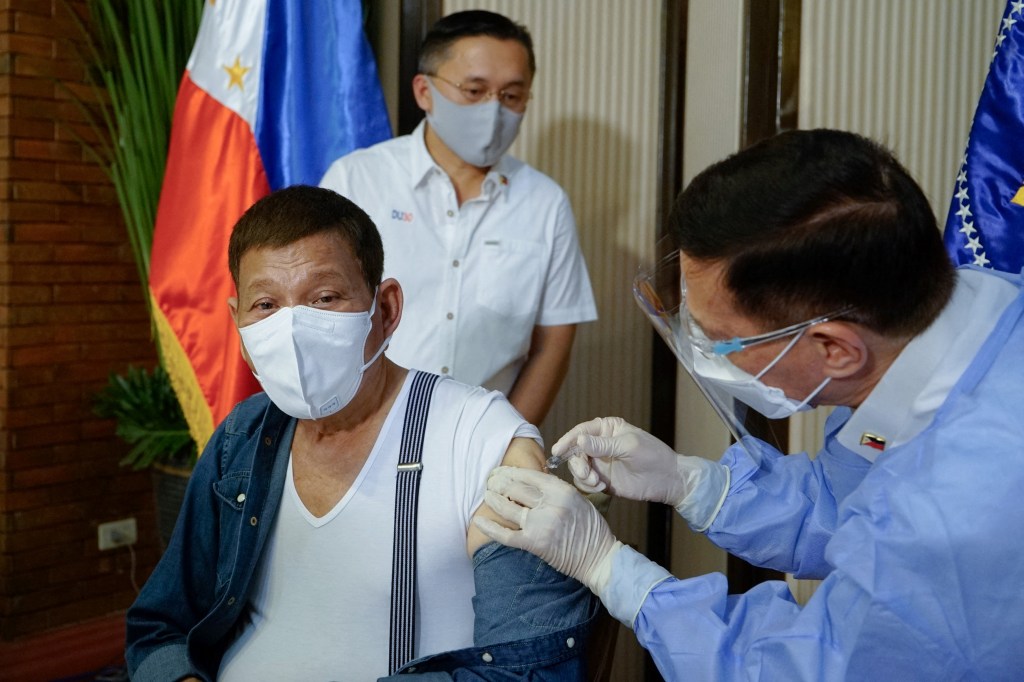LIMA, Peru — Peru has been rocked by a COVID-19 vaccine scandal after it emerged that hundreds of VIPS, including a former president and even the head of the Andean nation’s equivalent of the FDA, jumped the queue to get secret Chinese jabs.
The 3,200 doses were gifted to Peru by Sinopharm, Beijing’s state-owned pharmaceutical giant, supposedly to be used by local medical staff overseeing a trial of the vaccine in Lima involving 12,000 volunteers.
Videos by VICE
Instead, the shots were covertly distributed by German Malaga, the doctor overseeing the trial, to the rich and powerful, who received their shots months before ordinary Peruvians, including even ICU doctors and nurses, the elderly and those with comorbidities.
The scandal, dubbed “Vaccinegate” by the local media, has come at the worst possible time, just as Peru struggles with one of the worst pandemic second waves in the world.
The South American country is now registering roughly 5,000 excess deaths per week, a far larger number than confirmed COVID-19 fatalities. Meanwhile, 16 hospitals are reported to have run out of oxygen while another 23 are down to their last 24 hours of reserves.
Vaccinegate has also left many asking whether Beijing deliberately used the “additional” doses to bribe decision makers in Lima into buying 38 million Sinopharm doses. Some are now wondering if that deal, announced last month and enough to vaccinate 60 percent of the population, was based purely on the jab’s cost and clinical performance.
Recipients who had nothing to do with the trials at Lima’s Cayetano Heredia medical school included then-President Martin Vizcarra, who got his shots in October, before the jab had even been approved in Peru; an influential lobbyist; the health and foreign ministers; two university rectors; the Vatican’s ambassador to Peru; the head of Digemid, Peru’s equivalent to the United States’ FDA — the very agency which is supposed to police the licensing and use of medicines; and even the owner of a popular Chinese restaurant. Some were even given three doses.
Peru’s scandal is just the most flagrant to emerge so far in Latin America, where rampant graft and the world’s worst inequality levels provide fertile ground for the well-connected to jump the vaccine line.
In Argentina, the health minister, Gines Gonzalez, was forced to resign this weekend after it emerged that friends and political allies of his, including one prominent journalist, had been getting under-the-table jabs in the ministry building.
Meanwhile, in Ecuador, several university rectors have turned down private invitations from the government to get their shots early, arguing that it was unethical.
In Peru, if any of those invited to jump the vaccine queue showed similar rectitude by saying no, the news has yet to emerge. The blowback, meanwhile, from the scandal has been swift.
Prosecutors are now investigating Vizcarra – who was controversially ousted from office last November, shortly after receiving the jabs – the two ministers, both of whom have been forced to resign, the vaccine negotiators and those overseeing the vaccine trial for a range of potential crimes including bribery and taking advantage of public office. Peru’s medical association has also moved to strip the doctors involved of their licenses, including Pilar Mazzetti, the former health minister.
At the center of the storm is Malaga, the Cayetano Heredia doctor overseeing the trials, who allegedly flouted strict ethics rules of which a scientific investigator of his seniority would have been well aware, including vaccinating his 22-year-old daughter.
As he was grilled by a congressional committee, Malaga, who has now been suspended from his job, insisted: “This is not about privileges. It’s just the way things work.”
While that comment sparked outrage, others also acknowledged that it was arguably the first honest response from those behind Vaccinegate, and an accurate assessment of the runaway corruption that permeates most aspects of public life in Peru.
Separately, justifying the vaccination of the Chinese restaurant owner, Malaga said that the locale was a favorite of the visiting Sinopharm researchers, who had become “fed up with Burger King.”
Yet the role of Sinopharm, and Beijing, in the scandal remain unclear. Neither the company nor the Chinese Embassy in Lima could be contacted by VICE World News, nor have they commented publicly on the mushrooming scandal.
Percy Mayta-Tristan, a medical researcher at Lima’s Scientific University of the South, said it was extremely unusual for additional doses of an experimental vaccine to be offered for trial staff. The one notable exception was for Ebola test shots during a recent outbreak in Africa — a situation where the life-and-death imperatives were far more extreme than in the Peruvian case.
He added that Sinopharm’s offer looks like corruption: “That is what I suspect. At this point, we just don’t know. We also don’t know if this just happened in Peru, or were the Chinese doing this in other countries?”
But what is definitely true is that in Peru, Sinopharm found willing partners for the apparently irregular offer.
“This just reconfirms what we already knew, that Peru ticks all the boxes when it comes to a national culture favorable to corruption,” said Jorge Yamamoto, a social psychologist at the Pontifical Catholic University of Peru. “The problem is how do you start to turn it around? People feel like if everyone else is jumping the red light, then why shouldn’t I?”
But the biggest unanswered question arising from the scandal is whether Peru’s purchase of 38 million Sinopharm doses, announced last month, was in the best national interest?
With the Moderna, Pfizer and AstraZeneca shots unlikely to be available to Peru in significant numbers until the fall, Lima’s options were limited. The two most likely alternatives were another Chinese vaccine, Sinovac, and Sputnik, the Russian offering.
Yet Sinovac is reported to only be 50 percent effective, compared to Sinopharm’s 80 percent. The Sputnik jab is reported to be 92 percent effective and cheaper than its Chinese rivals. But there have been concerns about the transparency of its data, and it remains unclear whether Peru could have bought a similar quantity of doses over a similar timeframe.





